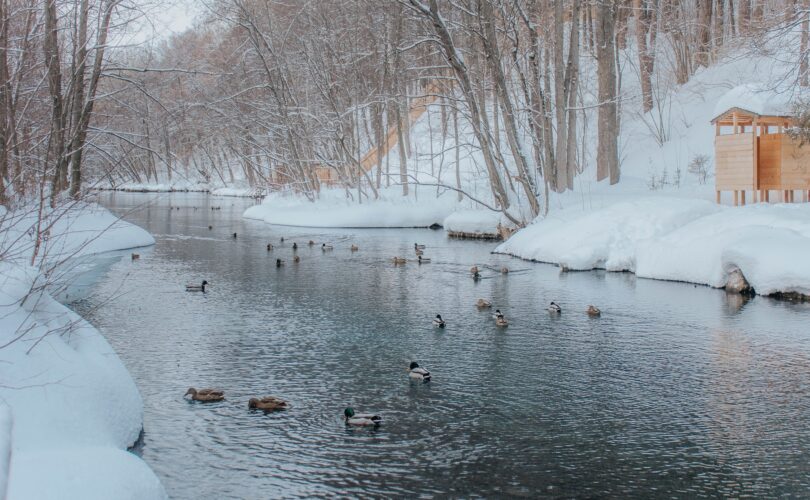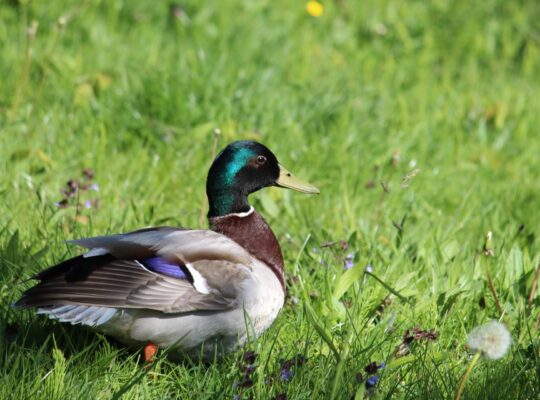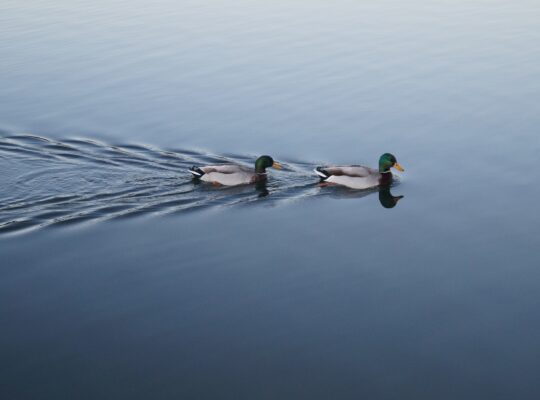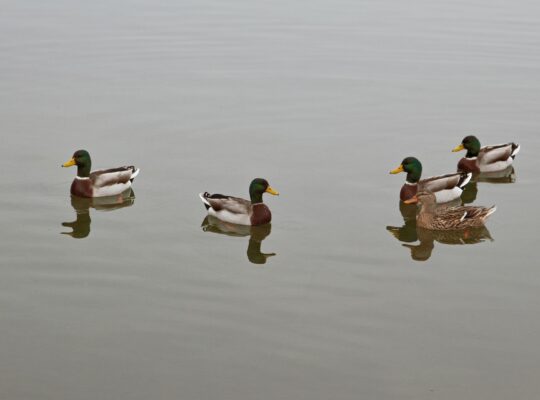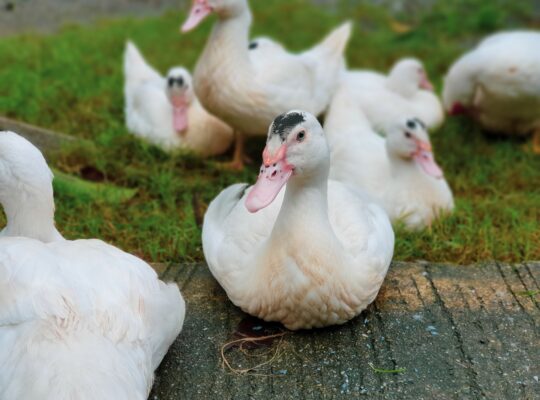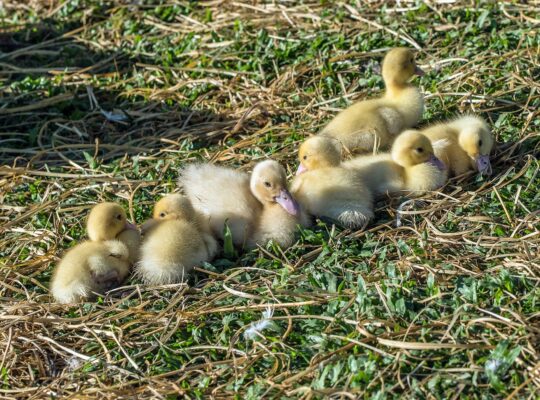Ducks are curious domesticated birds raised for their eggs and meat. Like other poultry birds, the egg-laying cycle of ducks is regulated by various variables, including daylight hours, temperature, and diet. Many individuals who own ducks or are just interested in them ask whether ducks lay eggs in the winter. This is a reasonable concern since winter poses difficulties for many creatures, including ducks. This article will look at whether ducks lay eggs in the winter, what variables influence their egg-laying cycle, and what you can do to encourage your ducks to produce eggs all year.
Ducks are a seasonal layer, which means they lay eggs only during the breeding season, which lasts from late winter to early summer. Ducks need a lot of energy to create eggs during this period, so they choose to lay during months when food is plentiful. Yet, certain duck species have been seen laying eggs outside the traditional breeding season, especially during the winter. Temperature, food availability, and the quantity of sunshine are all factors that might influence a duck’s laying behavior.
Temperatures in many regions of the globe may decrease dramatically during the winter, affecting a duck’s egg-laying behavior. Ducks may not have the energy to create eggs if the temperature is too low, since they must maintain their own body temperature to live. Besides temperature, food availability may influence whether or not ducks lay eggs in the winter. If food is short during the winter, ducks may need more stamina to lay eggs since they need to eat a lot of food to produce eggs.
Overall, the sunshine a duck receives may influence its egg-laying tendencies. Since ducks need a specific amount of sunshine to activate their reproductive system, some may produce fewer eggs or stop producing entirely when the days become shorter in the winter. Finally, whether or not ducks lay eggs in the winter depends on various conditions, including temperature, food availability, and the quantity of daylight. Although certain duck species may lay eggs all year, most ducks are seasonal layers and only lay during breeding.
What Season Do Ducks Lay Their Eggs?
Ducks have been observed to deposit eggs in the spring. Most duck breeds’ peak egg-laying season is between March and May in the northern hemisphere and September and November in the southern hemisphere. This is because the temperature warms and the days lengthen throughout the spring season, creating ideal circumstances for ducks to lay and hatch their eggs.
Ducks are also known to be seasonal breeders, which means they only reproduce at certain times of the year. This is because ducks need a particular amount of sunshine to activate their reproductive systems, and the rising brightness throughout the spring season causes hormonal changes.
The egg-laying date may vary based on the duck species, region, and environment. For example, depending on their environment, ducks may begin producing eggs sooner or later in the year. Also, ducks in temperate areas may have a more extended breeding season, while those in colder climes may have a shorter one.
Generally, spring is when ducks lay their eggs, which is critical for the species’ survival and perpetuation. Female ducks choose their nesting places with care, laying and incubating their eggs for around 28 days until they hatch. As the ducklings are born, they need special attention and protection from their mother to guarantee their survival. The egg-laying season is essential for the duck population’s growth and development.
What Temperature Is Too Cold For Ducks
Ducks are sturdy and resilient birds that can survive in a wide variety of temperatures. Ducks, like other creatures, have limitations when it comes to severe temperatures. It is essential to understand what temperature is too low to protect their well-being, like temperatures ranging from 50 to 75 degrees Fahrenheit. Ducks generally can endure temperatures as low as 20 degrees Fahrenheit as long as they have access to shelter, food, and water. As temperatures fall below this range, ducks may develop several health issues that can lead to sickness and even death.
Ducks are vulnerable to frostbite when temperatures fall below 20 degrees Fahrenheit, which may cause tissue damage and infection. They may also have respiratory problems since chilly air irritates their lungs and makes breathing difficult. Prolonged exposure to freezing temperatures may result in hypothermia, in which the body’s core temperature drops dangerously low, resulting in organ failure and death in severe instances.
It is critical to provide appropriate shelter, food, and water to keep ducks safe and comfortable during cold weather. A shelter that shields ducks from wind and rain is essential for keeping them warm and dry. A well-insulated coop or barn with no drafts may help keep ducks warm throughout the winter. Moreover, giving clean enough, unfrozen water and high-quality, high-energy food may help keep ducks healthy and comfortable during cold weather.
To summarize, although ducks are robust birds that can adapt to a wide variety of temperatures, it is critical to regularly watch them during cold weather to maintain their comfort and health. Temperatures below 20 degrees Fahrenheit may be deadly for ducks, so it is critical to provide them with enough shelter, food, and water during harsh weather conditions.
How Often Do Wild Ducks Lay Eggs?
Wild ducks, like most birds, have a seasonal reproductive cycle. The frequency with which wild ducks lay eggs varies according to several parameters, such as duck species, age, and environmental circumstances. Wild ducks generally lay eggs once a year, during the breeding season.
The breeding season for wild ducks varies by area and species, although it usually occurs in the spring and early summer. Wild ducks begin to establish couples and participate in courting rituals such as elaborate displays and vocalizations around this time. After establishing a partnership, the female will begin to lay eggs in a ground nest or tree hole.
The number of eggs laid by wild ducks varies according to species and personalities. Most wild duck species lay between 6 and 12 eggs in a single clutch, while some may lay as few as two or as many as twenty. The eggs are typically deposited over many days, with the female depositing one daily.
When the eggs are deposited, the female will incubate them for around 28 days, when the male may supply her with food and shelter. After the eggs hatch, the ducklings will stay with their mother for many weeks until they are old enough to be on their own.
Although wild ducks typically lay eggs once a year, domesticated ducks, such as those raised for egg production, may lay more regularly. Domesticated ducks have been deliberately selected for enhanced egg production, resulting in modifications in their reproductive cycle.
Finally, wild ducks lay eggs once a year during the breeding season, with the number of eggs deposited varying by species and individual. The eggs are typically placed over several days and incubated by the female for around 28 days before hatching.

